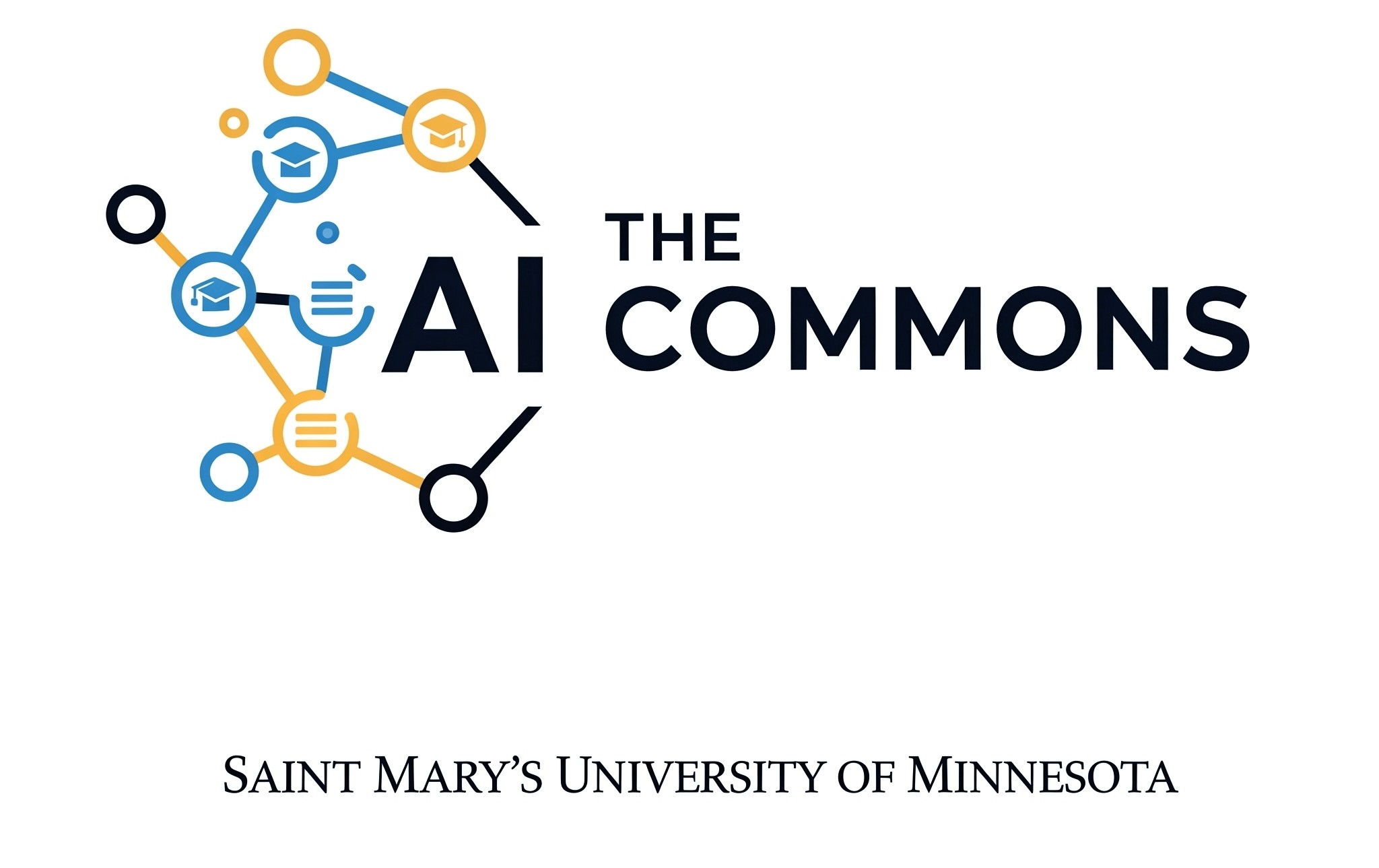
Position Statement
Saint Mary’s University of Minnesota is committed to forming ethical leaders who ensure innovative and emerging technologies are ordered toward the common good. Drawing from our Lasallian Catholic heritage with its emphasis on educational excellence, human formation, and practical workforce alignment, Saint Mary’s is uniquely positioned to prepare students to address the challenges of automation. In light of the critical issues and challenges posed by A.I. and other emerging technologies, the president of Saint Mary’s University of Minnesota, Rev. James P. Burns, IVD, PhD, appointed a working group to develop this Position Statement which President Burns approved on April 1, 2025.
University A.I. Principles
Prioritize Human Dignity
The Catholic Intellectual Tradition emphasizes the belief that human persons are made in the image and likeness of God, which the Lasallian charism concretely applies by continually seeking the good of students entrusted to our care. Following this, the dignity of human persons needs to be forefront in our response to new A.I. technologies.
- Person-Centered A.I. Technology Adoption: The Saint Mary’s community critically examines any proposed adoption or use of modern artificial intelligence to ensure it respects the unique dignity of human persons, enabling rather than substituting for human ingenuity and relationships. Special care should be given to ensuring A.I. technology use serves the needs of human persons rather than shaping persons to fit technological tools.
- Human-Centered Skills: Following the recent papal remarks on the human person in the age of automation, courses and training emphasize human-centered character traits such as critical thinking, creativity, and emotional intelligence to empower students and employees to direct AI-use toward human flourishing.
Ethics-Driven Character Education
The character education framework adopted by the Board of Trustees emphasizes human formation and the good of the human family in a way that transcends and integrates other purposes of education: economic mobility, skills training, and social integration. A curriculum that integrates character education and ethical use of AI tools prepares students to promote human flourishing across diverse communities.
- Mature A.I. Technology Adoption: Grounded in our commitment to human dignity and service, we aim to form students as mature critics of technology, instilling ethical decision-making skills adaptable to future technological changes. Assessments and activities encourage students to critically evaluate A.I. technological innovations, adopting and rejecting tools based on the principles of human dignity. Essential to this process is training students in technological literacy and how to responsibly, effectively, and ethically use existing tools.
- Lifelong Learning: Following the Lasallian values of inclusive lifelong learning, Saint Mary’s supports continuous education, offering training for faculty, staff, students, and alumni to adapt to evolving workforce needs, expectations, and relational skills.
Promoting Individual and Societal Flourishing
The Lasallian educational mission cannot be limited to the classroom and must be turned outward and inward toward the perfection of the self and common good. Likewise human formation and character education integrate the need for skills training, becoming good people, and economic mobility with the ability to thrive within society. Consequently, university use and development of AI should positively impact local community partners and beyond.
- Community Engagement: By ordering A.I. technology to the project of human flourishing, Saint Mary’s collaborates with community partners to address societal challenges, support a learning environment that values service and human dignity, and facilitate meaningful community and stakeholder relationships.
- Stewardship: Saint Mary’s promotes responsible A.I. use through guidelines that ensure technology serves the community’s well-being and considers associated risks. Such guidelines help ensure technologies benefit the entire academic community while considering risks that include, but are not limited to the following guiding principles on limiting AI tools: Use AI tools only in ways that promote the dignity of other human persons.
- Purposefully select and integrate AI tools when they encourage student growth as human persons who can flourish in society.
- Protect personal or confidential information and opt out of training future LLM’s with institutional data or intellectual property.
- Transparently disclose use of AI.
- Validate AI outputs, avoiding error and bias.
